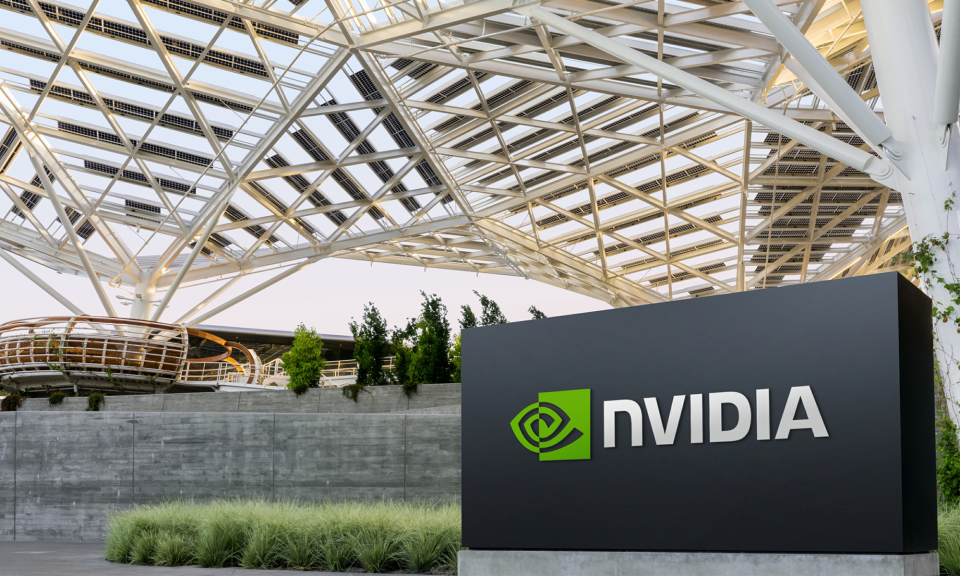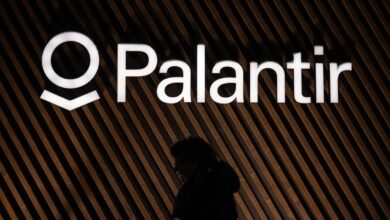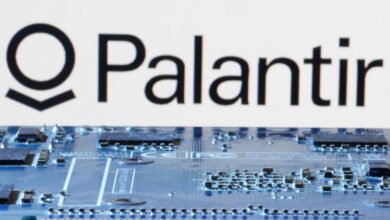
[ad_1]

Nvidia (NASDAQ: NVDA) is on a shopping spree in the biotech industry. While it has no intention of developing medicines or pharmaceutical technologies for the laboratory, its strategy clearly calls for getting some exposure to the sector, and when it makes a move, others tend to follow.
But how could making investments in an area so far outside of its traditional wheelhouse end up supporting shareholder value in the future rather than destroying it? Let’s dive in and examine why it’s staking out its biotech claims.
A certain kind of biotech is getting all of the attention
Nvidia isn’t cutting deals and making investments in just any old biotech. Its quarries are biotechs using artificial intelligence (AI) as part of their drug discovery and development process. In July, the chipmaker made a $50 million equity investment in Recursion Pharmaceuticals, a biotech dedicated to developing medicines more efficiently using its AI platform.
But that’s just one out of an ever-growing handful of investments it’s making in the space. In 2023 alone, it invested in at least six different AI-enabled biotechs in the U.S. and the U.K. It’s also pursuing a collaboration in drug development using AI with Genentech, a subsidiary of Roche.
While the sizes of its investments are often not disclosed, one thing’s for sure. With more than $18 billion in cash, equivalents, and short-term investments on hand, Nvidia has an abundance of funds available to allocate to potential drivers for its long-term growth.
At first glance, biotech seems like it’s an odd fit for Nvidia’s traditional business model of developing and selling new chips and computing services. But in the broader context of being in the early days of the ongoing AI revolution, these plays make a lot more sense.
It’s currently developing a service it calls BioNeMo, which it markets as an AI platform for accelerating drug discovery. Both Recursion Pharmaceuticals and Schrodinger, which are already popular AI-driven drug discovery biotechs in their own right, are paid collaborators contributing to the service’s capabilities.
Eventually, BioNeMo could be the go-to tool for biopharmas at the very start of the drug discovery process. And that would open the door to charging them subscription fees or perhaps even a small cut of the royalties from any of the medicines commercialized with the help of the system.
These investments will take quite a while to pay off
Nvidia is currently working to develop a suite of services that would make it into an AI foundry of sorts, wherein all types of businesses rely on it to help them build AI systems that are adapted to their specific needs. But today, despite its run of investments in biotech, its revenue from all healthcare sources combined is marginal and well beneath $1 billion annually.
That makes it insignificant in comparison to the $18 billion it brought in during the third quarter of its 2024 fiscal year, the most recent quarter. The segment isn’t even mentioned consistently in its earnings materials or investor presentations — at least for now.
At the moment, Nvidia is clearly positioning itself to gain from any breakthroughs or progress made in the field of AI for drug discovery by incorporating elements from the most promising players into its own AI platform via its investments. It can likely realize some value from its committed cash if it can onboard more customers to its drug development platform.
But getting new customers will be a lot easier a few years down the line, when the biotechs contributing to its platform today will be approaching the commercialization of the medicines they made with the help of AI, not to mention Nvidia. If regulators grant those biotechs permission to sell their drugs, it’ll be possible to do a retrospective analysis regarding the utility that AI provided along the way.
Once there are clear examples of success in using AI to make the drug development process faster, more reliable, and cheaper, companies will flock to use its tools for their own benefit, and that could drive some more significant revenue growth.
Will Nvidia’s revenue from biopharma services ever approach the tens of billions that it makes from its other segments? Probably not. Still, it’s very probable that at least a few of the bets it made recently will have huge returns that’ll grow the value of the business.
Diversifying into a new area will also provide a bit of downside protection in case its other segments struggle. And for a headline-driven stock like Nvidia’s, it’s always beneficial to get another injection of good news to build the hype up even further.
So keep your eyes out for news of more biopharma investment activity — it won’t make much of a difference today, but in the long run, it’s a bullish driver for Nvidia stock.
Should you invest $1,000 in Nvidia right now?
Before you buy stock in Nvidia, consider this:
The Motley Fool Stock Advisor analyst team just identified what they believe are the 10 best stocks for investors to buy now… and Nvidia wasn’t one of them. The 10 stocks that made the cut could produce monster returns in the coming years.
Stock Advisor provides investors with an easy-to-follow blueprint for success, including guidance on building a portfolio, regular updates from analysts, and two new stock picks each month. The Stock Advisor service has more than tripled the return of S&P 500 since 2002*.
*Stock Advisor returns as of December 11, 2023
Alex Carchidi has no position in any of the stocks mentioned. The Motley Fool has positions in and recommends Nvidia. The Motley Fool recommends Roche Ag. The Motley Fool has a disclosure policy.
Nvidia Is Investing in Biotech Like Wild. Here’s What It Means for the Stock. was originally published by The Motley Fool
Source link




